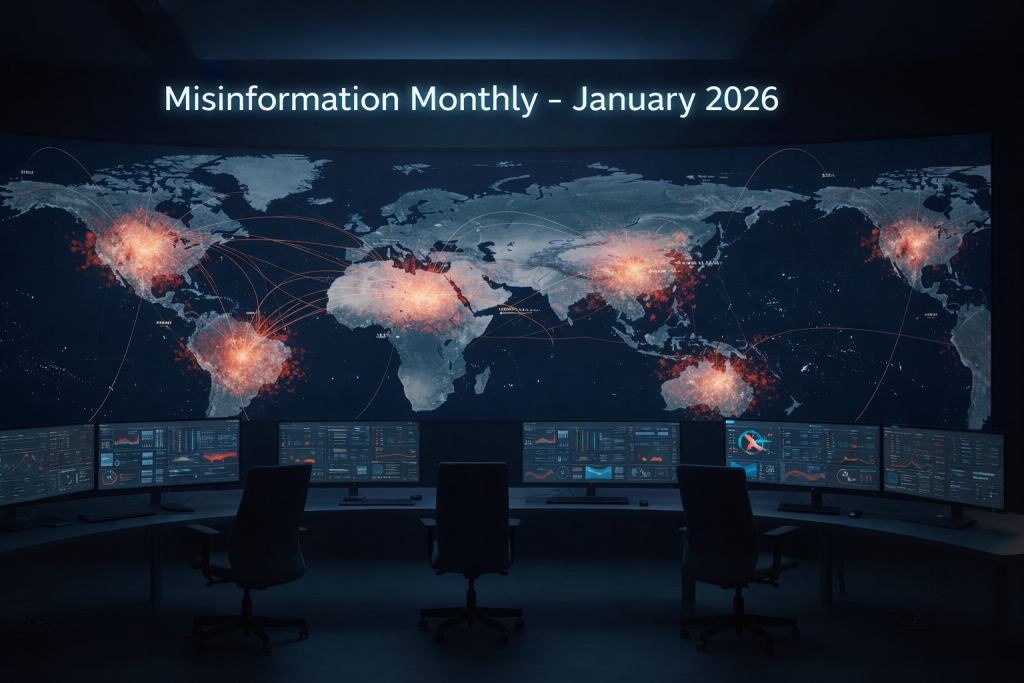Cyabra’s experts share some of the interesting articles, items, essays, and stories they’ve read this month. Come back every month for the current misinformation, disinformation, and social threat intelligence news.
The Disinformation Storm Is Now Hitting Companies Harder
Financial Times
“Boardrooms appear delayed in accepting disinformation as a priority, just as they were with cyber security. […] A survey of almost 400 top communications and marketing executives found that eight in 10 worry about the impact of disinformation on their businesses. Fewer than half feel prepared to tackle these risks.”
2024: The year in misinformation
KFF.org
Record-breaking hurricanes, the rapid development and use of generative artificial intelligence technologies, anything Taylor Swift, two assassination attempts, and President-elect Donald Trump’s win were among the biggest news stories of 2024. But misinformation often spread as rapidly as the facts about these events did. Here are the top misinformation trends of 2024.
How Finnish youth learn to spot disinformation
France24
“By teaching its citizens how to critically engage with media content to debunk hoaxes, mis- and disinformation, as well as to produce content of their own, Finland wants to promote media literacy as a civic skill. […] The students said the education system had equipped them with abilities to spot suspicious information online, critically analyse content and verify sources they encounter on social media networks such as TikTok, Snapchat and Instagram.”
How AI deepfakes polluted elections in 2024
NPR
“In January, thousands of New Hampshire voters picked up their phones to hear what sounded like President Biden telling Democrats not to vote in the state’s primary, just days away. But it wasn’t Biden. It was a deepfake created with artificial intelligence — and the manifestation of fears that 2024’s global wave of elections would be manipulated with fake pictures, audio and video, due to rapid advances in generative AI technology.”
“AI-generated misinformation was named as the top global risk of the next two years in a World Economic Forum survey in January. Fifty-five percent of Americans said the U.S. government and tech companies should act to restrict false information online. Gates, the subject of numerous conspiracy theories, is likely more familiar with misinformation than he’d care to be. “Hearing my daughter talk about how she’d been harassed online, and how her friends experienced that quite a bit, brought that into focus in a way that I hadn’t thought about before,” says Gates.”
Australia: ambitious anti-disinformation bill dropped, RSF calls for regulation of online platforms
rsf.org
“The bill sought to oblige digital platforms to manage misinformation and disinformation risk, and enhance transparency in their handling of such content. It proposed a range of penalties, including fines on online platforms of up to 5% of their global revenue if they failed to curb the dissemination of false information.”


